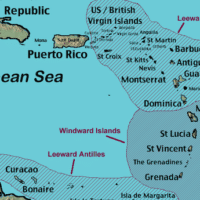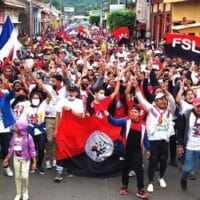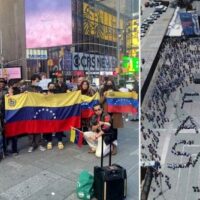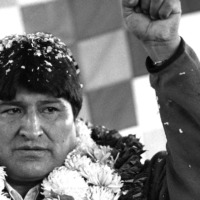-
Canada’s steadfast support for Big Agriculture’s assault on Mexican biodiversity
Although Mexico has maintained a ban on genetically modified (GM) corn since the 1990s, the move by Mexican President Andres Manuel Luiz Obrador (AMLO) in 2020 to eventually ban the import of GM corn in order to promote domestic cultivation of native varieties has threatened to spark a trade war with the United States.
-
U.S. moves to curtail China’s economic investment in the Caribbean
On March 8, 2023, General Laura J. Richardson of the United States (U.S.) Southern Command gave testimony at a congressional hearing wherein she issued a warning to U.S. lawmakers about the expansion of Chinese influence in the Caribbean that were at odds with purported U.S. interests in the region.
-
Saab hearing proves he deserves diplomatic immunity, exposes prosecution’s duplicity
On December 12 to 13, 2022, an evidentiary hearing in the case of The United States v. Alex Saab was heard before Judge Robert Scola in the U.S. District Court for the Southern District of Florida.
-
Decolonization, multipolarity, and the demise of the Monroe Doctrine
December 3, 2023 marked the 200th anniversary of the Monroe Doctrine.
-
The Nobodies take Office in Colombia: an in-depth analysis
People are crying, embracing, yelling, as the streets fill with joy. Horns honk and people dance in the middle of avenues. They can’t believe that the news traveling by word of mouth, tweet to tweet, news show to news show, is really true. As the minutes and hours pass, they confirm that it is true: This June 19th they—the Nobodies—have won.
-
Nicaragua celebrates 43 years of revolution: a clash between reality and media misrepresentation
July 19th is a day of celebration in Nicaragua: the anniversary of the overthrow of the Somoza dictatorship. But the international media will have it penciled in their diaries for another reason: it’s yet another opportunity to pour scorn on Nicaragua’s Sandinista government.
-
New revelations of former U.S. Secretary of Defense confirm illegality of the extradition and arrest of diplomat Alex Saab
In his new memoir, ‘Sacred Oath,’ former U.S. Defense Secretary, Mark Esper, who served under President Donald Trump at the time of the arrest of Alex Saab in Cape Verde, effectively admits that the White House was quite aware of the fact that Saab was a diplomat at the time of his capture.
-
Energy reforms blocked in Mexico, sharpening ideological lines for 2024 elections
These were no minor initiatives; they jeopardized the agendas put forth by the neoliberal administrations of the past.
-
New Book: ‘Nicaragua, A History of U.S. Intervention & Resistance’
Ocotal is a historic Nicaraguan city located in the Department of Nueva Segovia. It is famous for being the site of battles between the U.S. Marines and the peasant guerilla forces of Augusto Cesar Sandino in the mid-1920s.
-
Two exemplary Twentieth-Century Socialist Latin American lives: José Carlos Mariátegui and Orlando Letelier
The two books we will analyze in this essay, Bread and Beauty: The Cultural Politics of José Carlos Mariátegui by Juan E. De Castro, and Alan McPherson’s Ghosts of Sheridan Circle: How a Washington Assassination Brought Pinochet’s Terror State to Justice, are very different in subject matter, discipline, and style.
-
Facebook does the U.S. government’s censorship work in Nicaraguan elections
A few days before the Nicaraguan presidential elections on November 7, Facebook and other social media companies began closing down many of the pages used by Sandinista supporters in their campaign to re-elect President Daniel Ortega.
-
The U.S. flies Alex Saab out from Cabo Verde without court order or extradition treaty
On October 16, Colombian businessman and Venezuelan Special Envoy Alex Saab was in practical terms kidnapped for the second time, first by Cabo Verde under pressure from Washington, and now by the U.S., in flagrant violation of international law.
-
175 Years of border invasions: The anniversary of the U.S. war on Mexico and the roots of northward migration
Amid renewed fear mongering about an “invasion” at the U.S.-Mexico border, this week’s 175th anniversary of the 1846–1848 war the U.S. government instigated with Mexico is a reminder that throughout U.S. history, invasions have gone almost exclusively from north to south, not vice versa.
-
Behind the racist coup in Bolivia
Sunday November the 10th, at approximately 4pm (eastern standard time) the democratically elected president and vice president of Bolivia, Evo Morales and Álvaro García respectively, were forced to resign from power.














